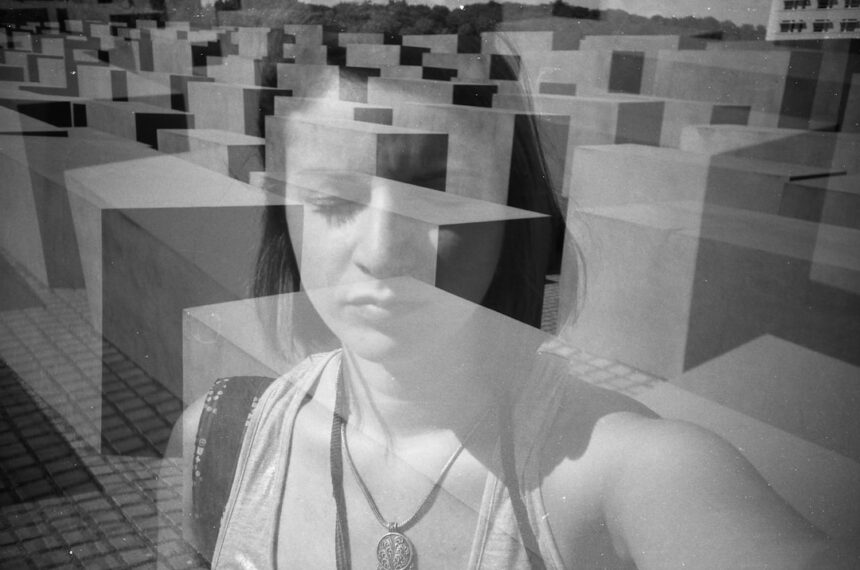Depersonalization Derealization Syndrome Disorder (DPDR) is a complex psychological condition that can leave you feeling detached from your own thoughts, feelings, and sense of self. It often manifests as a persistent or recurrent experience of feeling disconnected from your body or surroundings, leading to a sense of unreality. You might find yourself observing your life as if you were an outsider, watching events unfold without truly engaging in them.
This disconnection can be unsettling and may lead to significant distress, as it challenges your perception of reality and self-identity. The disorder is classified under dissociative disorders, which are characterized by disruptions in consciousness, memory, identity, or perception. While many people may experience fleeting feelings of depersonalization or derealization during stressful situations, those with DPDR experience these sensations persistently and to a degree that interferes with their daily functioning.
Understanding this disorder is crucial for recognizing its impact on your life and seeking appropriate help.
Key Takeaways
- Depersonalization Derealization Syndrome Disorder is a mental health condition characterized by feeling detached from oneself and the surrounding environment.
- Symptoms of the disorder include feeling like an outside observer of one’s thoughts and actions, experiencing a sense of unreality, and feeling emotionally numb.
- The causes of Depersonalization Derealization Syndrome Disorder are not fully understood, but it is often associated with trauma, anxiety, and stress.
- Diagnosis of the disorder involves ruling out other medical conditions and may include therapy and medication as treatment options.
- The disorder can have a significant impact on daily life, affecting relationships, work, and overall well-being. Coping strategies and support systems are important for managing the condition.
Symptoms of Depersonalization Derealization Syndrome Disorder
The symptoms of DPDR can vary widely from person to person, but they generally fall into two main categories: depersonalization and derealization. When you experience depersonalization, you may feel as though you are observing yourself from outside your body or that your thoughts and emotions are not your own. This can create a sense of emotional numbness or detachment, making it difficult for you to connect with your feelings or the people around you.
On the other hand, derealization involves a distorted perception of your surroundings. You might perceive the world as foggy, dreamlike, or unreal.
These symptoms can be disorienting and frightening, often leading to anxiety or panic attacks. It’s important to recognize that these experiences are not indicative of a loss of sanity; rather, they are a response to overwhelming stress or trauma.
Causes of Depersonalization Derealization Syndrome Disorder

The exact causes of DPDR are not fully understood, but several factors may contribute to its development. One significant factor is trauma. Many individuals with DPDR report experiencing traumatic events, such as abuse, accidents, or the sudden loss of a loved one.
In these cases, depersonalization and derealization can serve as coping mechanisms, allowing you to distance yourself from the emotional pain associated with these experiences. Additionally, high levels of stress and anxiety can trigger episodes of depersonalization and derealization. If you are constantly under pressure—whether from work, relationships, or other life circumstances—you may find yourself slipping into these dissociative states as a way to escape overwhelming feelings.
Other potential contributors include substance abuse, certain medical conditions, and even genetic predispositions. Understanding these causes can help you identify potential triggers in your own life.
Diagnosis and Treatment Options for Depersonalization Derealization Syndrome Disorder
| Diagnosis and Treatment Options for Depersonalization Derealization Syndrome Disorder | |
|---|---|
| Diagnosis | Depersonalization Derealization Syndrome Disorder is diagnosed through a comprehensive psychiatric evaluation, including a detailed medical history, physical examination, and psychological assessment. |
| Symptoms | The symptoms of Depersonalization Derealization Syndrome Disorder include persistent or recurrent feelings of being detached from one’s mental processes or body (depersonalization) and feeling detached from one’s surroundings (derealization). |
| Treatment Options | Treatment options for Depersonalization Derealization Syndrome Disorder may include psychotherapy, medication, and self-help strategies. Cognitive-behavioral therapy (CBT) and medication such as selective serotonin reuptake inhibitors (SSRIs) are commonly used. |
| Prognosis | The prognosis for Depersonalization Derealization Syndrome Disorder varies, but with appropriate treatment and support, many individuals can experience significant improvement in their symptoms. |
Diagnosing DPDR typically involves a comprehensive evaluation by a mental health professional. During this process, you will likely discuss your symptoms, medical history, and any traumatic experiences you may have encountered. The clinician may use standardized assessment tools to determine the severity and impact of your symptoms on daily life.
It’s essential to rule out other mental health conditions that may present similar symptoms, such as anxiety disorders or post-traumatic stress disorder (PTSD). Treatment options for DPDR can vary based on individual needs but often include psychotherapy as a primary approach. Cognitive-behavioral therapy (CBT) is particularly effective in helping you understand and reframe negative thought patterns associated with depersonalization and derealization.
In some cases, medication may be prescribed to address underlying anxiety or depression that could be exacerbating your symptoms.
Impact of Depersonalization Derealization Syndrome Disorder on Daily Life
Living with DPDR can significantly affect various aspects of your daily life. You may find it challenging to engage in social situations or maintain relationships due to feelings of detachment or unreality. This disconnection can lead to misunderstandings with friends and family who may not fully grasp what you are experiencing.
As a result, you might feel isolated or misunderstood, compounding the emotional toll of the disorder. Moreover, DPDR can interfere with your ability to perform at work or school. Concentration difficulties and a lack of motivation are common among individuals with this disorder.
You may struggle to focus on tasks or feel as though you are going through the motions without truly participating in your life. This can lead to decreased productivity and increased frustration, further perpetuating the cycle of anxiety and dissociation.
Coping Strategies for Depersonalization Derealization Syndrome Disorder

While navigating the challenges of DPDR can be daunting, there are several coping strategies that may help you manage your symptoms more effectively. Mindfulness practices can be particularly beneficial in grounding yourself in the present moment. Techniques such as deep breathing exercises, meditation, or yoga can help you reconnect with your body and surroundings, reducing feelings of detachment.
Engaging in creative outlets can also serve as a powerful coping mechanism. Whether it’s writing, painting, or playing music, expressing yourself artistically can provide an emotional release and help you process your experiences. Additionally, maintaining a routine that includes regular physical activity and social interaction can foster a sense of normalcy and connection in your life.
Support Systems for Individuals with Depersonalization Derealization Syndrome Disorder
Building a strong support system is essential for anyone dealing with DPDR. Connecting with others who understand what you’re going through can provide comfort and validation. Support groups—whether in-person or online—can offer a safe space for sharing experiences and coping strategies.
You might find solace in hearing how others have navigated similar challenges and learned to manage their symptoms. In addition to peer support, involving trusted friends and family members in your journey can be invaluable. Educating them about DPDR can foster understanding and empathy, allowing them to provide the support you need during difficult times.
Open communication about your experiences can strengthen these relationships and create a network of care that helps you feel less isolated.
Research and Future Directions for Understanding Depersonalization Derealization Syndrome Disorder
Research into DPDR is ongoing, with scientists striving to uncover the underlying mechanisms that contribute to this complex disorder. Recent studies have explored the neurobiological aspects of dissociation, examining how brain function may differ in individuals with DPDR compared to those without the disorder. Understanding these differences could lead to more effective treatment options tailored specifically for those affected by DPDR.
Future directions in research may also focus on the relationship between DPDR and other mental health conditions. By exploring comorbidities such as anxiety disorders or PTSD, researchers hope to develop integrated treatment approaches that address multiple facets of an individual’s mental health. As awareness of DPDR continues to grow within the mental health community, it is hoped that more resources will become available for those seeking help.
In conclusion, understanding Depersonalization Derealization Syndrome Disorder is crucial for recognizing its impact on individuals’ lives. By identifying symptoms, causes, and effective coping strategies, you can take proactive steps toward managing this complex condition. With the right support systems in place and ongoing research efforts aimed at deepening our understanding of DPDR, there is hope for improved outcomes for those affected by this challenging disorder.
Depersonalization-derealization syndrome is a complex mental health condition characterized by persistent feelings of detachment from one’s body or surroundings, often described as feeling like an outside observer of one’s life. This disorder can significantly impact daily functioning and quality of life. For those seeking more information on this condition, an insightful article can be found on Unplugged Psych, which delves into the nuances of depersonalization and derealization, offering a comprehensive overview of symptoms, potential causes, and treatment options. You can read more about it by visiting this link.
LEARN MORE About Depersonalization & Derealization
FAQs
What is depersonalization derealization syndrome disorder?
Depersonalization derealization syndrome disorder is a mental health condition characterized by feeling detached from oneself (depersonalization) and feeling detached from the world or surroundings (derealization).
What are the symptoms of depersonalization derealization syndrome disorder?
Symptoms of depersonalization derealization syndrome disorder may include feeling like an outside observer of one’s thoughts, feelings, and body, feeling like the world is unreal or distorted, emotional numbness, and difficulty connecting with others.
What causes depersonalization derealization syndrome disorder?
The exact cause of depersonalization derealization syndrome disorder is not fully understood, but it is believed to be related to a combination of biological, psychological, and environmental factors. Trauma, stress, anxiety, and certain personality traits may contribute to the development of the disorder.
How is depersonalization derealization syndrome disorder diagnosed?
Diagnosis of depersonalization derealization syndrome disorder is typically based on a thorough psychiatric evaluation, including a discussion of symptoms, medical history, and ruling out other potential causes of the symptoms. There are no specific tests for diagnosing the disorder.
What are the treatment options for depersonalization derealization syndrome disorder?
Treatment for depersonalization derealization syndrome disorder may include psychotherapy, medication, and self-care strategies. Cognitive-behavioral therapy (CBT) and mindfulness-based approaches have shown some effectiveness in helping individuals manage symptoms.
Is depersonalization derealization syndrome disorder a common condition?
Depersonalization derealization syndrome disorder is considered relatively rare, with prevalence estimates varying widely. It can occur at any age but often begins in adolescence or early adulthood.




